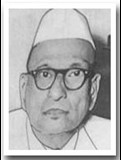Generalities
Lead produces general sclerotic condition. It affects the MUSCLES; NERVES; SPINAL CORD; abdomen; navel, kidneys; blood vessels and blood. Symptoms appear slowly; insidiously; progressively; often with violent side effects of very changeable and incoherent character; coming in single parts; etc. Paralysis; hysterical; infantile; of single parts, (wrist drop), flaccid; with hyperaesthesia; worse touch. Convulsive trembling and jerking of the limbs. Emaciation; of limbs, with plump body; of paralyzed parts, of single parts; after neuralgia. Impulse to stretch with abdominal distress. Retraction; of abdomen; anus; testes; navel etc. Anaesthesia is as marked as excessive hyperaesthesia. VIOLENT CONTRACTION. Retraction; sense of a string pulling back or in. Exaggerates her condition. Lightning pains that extort cries. Convulsions; chronic epilepsy, with marked aura; with haemorrhages. Boring; cramps. Progressive muscular atrophy. Multiple sclerosis; spinal sclerosis. Constriction in internal organs. Anaemia; jaundice; arterio-sclerosis; hypertension. Small aneurisms all over the body. Dropsical swelling. Gout. Ill effects of repelled eruptions. Sexual excess. Marasmus of infants in apparently hopeless cases, abdomen large and hard, and constipation extreme. Perception slow, comprehension is difficult. Tremors, followed by paralysis. Arthralgia.
Worse
Clear weather. Open air. Exertion. Motion. Company; in a room full of. Grasping smooth objects. Touch.
Better
Hard pressure. Rubbing. Stretching limbs.
Mind
Taciturn. Timid, restless and anxious. Frantic; bites, strikes. Quiet and melancholy. Fears; of assassination; of poisoning; thinks every one about her is a murderer. Stupid; imbecile. Delirium; nocturnal; alternating, with colic or pain in the limbs. Amnesic aphasia. Physical labour exhausts the mind. Slow perception. Weakness, or loss of memory. Increasing slowness and apathy. Inclined to cheat and deceive. Feigns sickness or exaggerates her condition. Hysterics, only while being watched. Screams from time to time. Fright without cause. Delirium from hearing music.
Head
Ache, as if a ball was rising from the throat into the head. Hair; dry, falls from beard. Fainting in room full of people, or on going from one room to other.
Eyes
Yellow or deep bluish red sclerotics. Optic neuritis; central scotoma. Paralysis of upper lid. Sudden loss of sight after fainting. Pupils contracted. Glaucoma; from spinal affections. Profuse hot lachrymation.
Ears
Tinnitus. Occasional sudden deafness. Hears music, with frightful delirium.
Nose
Loss of smell, with epilepsy. Nose cold.
Face
Pale and cachetic. Twitching of side of face (right). Cheeks sunken. Skin; greasy, shiny. Swelling of face, one side.
Mouth
Yellow inside the mouth. Distinct blue line along the margin of the gums. Gums; pale, swollen. Tongue; trembling; seems paralysed. Hard tubercles on gums. Sticky saliva. Sweet taste. Aphthae; foetid ulcers. Loud motion of lower jaw and frightful grinding of teeth. Saliva blue.
Throat
Dysphagia; fluids can be swallowed, solids come back into the mouth. Stricture of oesophagus, from spasms. Paralysis of gullet, with inability to swallow. Globus hystericus.
Stomach
Foul or faecal eructations. Vomiting of faecal matter, with colic and constipation. Gastralgia, better hard pressure; bending backwards. Periodical or persistent vomiting of food. Vomiting of brown black liquid or of green mucus.
Abdomen
NAVEL FEELS RETRACTED. Colic; accompanies many symptoms. Radiating abdominal pains to all parts of the body. Boring or as if forced through a narrow place. Hernia at navel. Abdomen tense or retracted. Anus feels drawn up or painfully contracted. Stools; granular; of hard black balls; like sheep dung; passed with an urging cramp in anus. Stubborn constipation or colics of infants. Abdomen is drawn into uneven lumps. Intussusception. Neuralgia of rectum. Prolapsus ani, with paralysis.
Urinary
Urine profuse but flows slowly; drop by drop. Chronic interstitial nephritis. Contracted kidney. Paralysis of bladder, difficult urination or retention; suppression. Uraemia, Albuminuria. Diabetes mellitus.
Male
Testicles drawn up; feel constricted. Loss of sexual power. Frequent pollutions.
Female
Vaginismus. Induration of mammary glands. Tendency to abortion; from undeveloped uterus. Feeling of lack of room for foetus in uterus. Breasts become momentarily harder or smaller, with colic. Menorrhagia, with a sensation of a string pulling from abdomen to back. Ovarian pain better stretching legs. Vulva and vagina hypersensitive. Cannot pass urine in pregnancy, from lack of sensation or paralysis.
Heart
Weak. Pulse wiry, slow sinks even to 40. Painful constriction of peripheral arteries.
Extremities
Wrist drop. Weakness and painful lameness of arms and hands. Pain in atrophied limbs, alternating with colic. Pain in right big toe. Paralysis of lower limbs, after parturition. Lightning like pains better by pressure. Sciatica; with muscular atrophy. As if feet were made of wood. Arms shaky when attempting to use them.
Skin
Bluish; red spots. Yellow. Dry. Oversensitive to open air. Bed sores. Dry, burning ulcers. Gangrene. Small wounds easily inflamed and suppurate. Skin, wrinkled, shrivelled and drawn over the bones. Blisters; corns, bunions.
Sleep
Takes odd position during sleep. Falls asleep while speaking.
Fever
Coldness from exertion. General cold sweat during stools. Feet cold when walking only.
Related
Opium
Complementary
Rhus-t; Thall.

